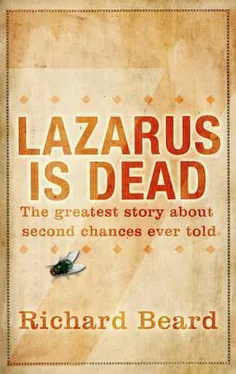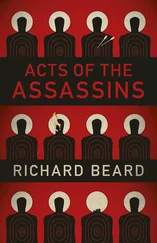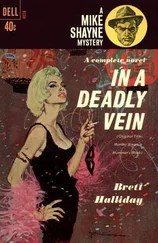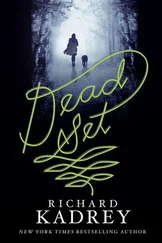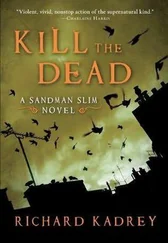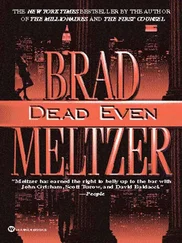The dagger jars loose from Baruch’s hand, skitters across the floor. Lazarus twists himself free and scrambles away. He turns and sees his attacker flee up the stairs, then leaps towards the dagger, seizes it and jumps into a crouch. He points the blade at the new arrival on the far side of the tomb.
Cassius has his hands on his knees and is breathing hard. He puts up one hand.
‘Lazarus, lay down the weapon. I’m arresting you in the name of the empire.’
1
IN THE RUSSIAN tradition, above all others, there is a yearning to know more about Lazarus. He is the patron saint of second chances, and his example ought to be instructive. There are times when everyone would like to start again.
In the novel Crime and Punishment (1866), by Fyodor Dostoyevsky, the student Raskolnikov kills an elderly woman with an axe. He is not instantly struck down by an avenging god, and is further disconcerted by his lack of remorse. He decides to visit his girlfriend Sonya, who is a prostitute, and on her chest of drawers he finds a bible (‘an old one, second-hand, in a leather binding’).
‘ “Where’s the bit about Lazarus?” he asked suddenly … “Go, read it!” ’
Sonya then reads to Raskolnikov from John 11, verses 1–44, finishing at ‘Jesus said to them, “Take off the grave clothes and let him go.”
‘ “That’s all there is about the raising of Lazarus,” she whispered sternly and abruptly, and stood unmoving, turned away to one side, not daring to raise her eyes to him, as though she were embarrassed.’
That’s all there is .
Sonya closes the book, but they both know there should be more. In the aftermath of his crime, Raskolnikov has turned to Lazarus, not to Jesus, because for Dostoyevsky the resurrection of Lazarus is ‘the great and unprecedented miracle’. It promises hope to a true unbeliever, or would do if only more of the story survived. Yes, Lazarus came back to life, but what then, what happened to him next?
The biblical Lazarus fails to provide the guidance that Raskolnikov needs. ‘All she [Sonya] could see was that he was horribly, infinitely unhappy.’
Raskolnikov is Lazarus, disconsolate and unsmiling, ‘infinitely unhappy’, surprised to be alive but uncertain what this life is for.
2
They tie his hands, loop a rope around the binding, then fix the rope to the saddle of a Roman horse. This is the second procession of the day from Bethany into Jerusalem, and the less well known of the two because the believers who tell the story of Holy Week are active in the city with Jesus.
‘Where I am, my servant also will be,’ Jesus is saying in the Temple at this precise moment. ‘My father will honour the one who serves me’ (John 12: 26).
By the end of the week Jesus will have been arrested, imprisoned, beaten and executed. Even so, on this day in Jerusalem he is at liberty to travel and speak as he wishes. Both the Sanhedrin and now the Romans are preoccupied with Lazarus, who stumbles over trampled palm leaves littering the Jerusalem road. Every time he falters, the rope tugs him onward.
Lazarus, too, is followed by a crowd. The believers are with Jesus, so those who walk with Lazarus do not believe.
‘If that’s him, he’s hardly worth it.’
‘Jesus saved one man in the Jerusalem region.’
‘And calls himself messiah.’
‘Lazarus was his friend.’
‘Isn’t that always the way?’
‘They cooked it up years ago.’
‘And no one saw Lazarus die.’
They toss his name about like an unwanted gift: the malingerer Lazarus, the charlatan, the liar Lazarus of Nazareth. Inside the city walls, women lean out of windows. Men leave their work to catch a glimpse of him.
‘They’re taking him to the fortress.’
‘The Romans have chosen Lazarus. They think he’s the one.’
Children cower behind adult legs, and teenagers compete to look a dead man in the eye. Many hold their hands over their noses.
Lazarus and Jesus have overreached themselves. Nobody with any sense believes in resurrection. Dead is dead. They’re Galileans too far from home, fake messiahs counterfeiting a special relationship with the Jewish god.
‘They’re the same as the rest of us.’
‘No one escapes death.’ On this point everyone can agree. ‘And especially not Lazarus the overseer. He was always a bit strange. I never liked him.’
‘Fear would be the wrong response,’ Cassius says. ‘Though to look at, you don’t seem very frightened.’
Cassius polishes an apple, checks his reflected face in the skin. ‘The Antonia Fortress is the safest place in Jerusalem. That’s what we built it to be.’
Lazarus nods. Beside the door, he notices, is a small shrine to Minerva, goddess of victory. Beyond the door, for more pragmatic interventions, two Roman soldiers stand guard. ‘You’re going to kill me.’
Cassius replaces his apple in the fruit bowl which is the centrepiece of a low rectangular table. ‘Help yourself,’ he says. ‘If you’re hungry.’
Lazarus bumps his toes over the tiles in the mosaic floor. If he were dead, how would he know? He imagines he is dead, and it turns out the Romans have conquered everywhere, even the afterlife.
‘If I’m dead you can’t kill me. Therefore I have nothing to fear.’
‘First things first.’
‘So what comes first?’
Cassius clicks his fingers. One of the guards unties Lazarus’s hands. The soldier tries not to touch him, treating Lazarus with the same caution as foreign novelties from previous campaigns. Lazarus is as unlikely as a crocodile, and possibly as treacherous.
‘Stay by the door,’ Cassius tells him.
No one wants to be alone with Lazarus, not even Cassius. Even without the alleged death, the rapid healing is against nature. If he can do this, they all think, what else can he do?
‘I brought you here for your own protection.’
‘I knew it. You’re going to kill me.’
‘That may not solve the problem. For example if you come back again. I’ve called for the garrison doctor. He will be with us shortly.’
Lazarus glances at the doorway. There wouldn’t be soldiers guarding the doors of heaven, not even a Roman heaven, unless heaven wasn’t safe for Romans. And then it wouldn’t be heaven. He can’t sustain this bravado. He is not dead, nor is he fearless. He is alive on earth in the Antonia Fortress, and he is frightened.
‘If we do kill you we’ll do it properly,’ Cassius adds, sensing that at last his words are having an effect. He pushes on. ‘Death the Roman way means crucifixion, and no one comes back from that.’
‘Please. I haven’t broken any laws. Not that I know of.’
‘I was there at the tomb. I saw what happened.’
‘So what did you see? Did I come back from the dead?’
‘In some ways, for your sake, I hope so. If you’re lying then the penalty for false witness is death.’
‘The penalty for everything is death.’
‘That’s justice for you. We’re going to check your physical condition. Take off all your clothes.’
3
The Lazarus resurrection, like other supernatural events in the Christian story, can enrage the scholastic mind. ‘Higher Criticism’ emerged in Germany in the eighteenth century, and the higher critics subjected the bible to the same objective analysis as other historical documents. Their aim was to establish the truth of biblical narratives.
David Friedrich Strauss (1808–74), who extended the work of Friedrich Schleiermacher (1768–1834) concluded that the Lazarus story was a ‘myth’. In his highly influential Life of Jesus (1863), Ernest Renan considers it a fraud perpetrated by the disciples to grow the Christian community.
Читать дальше
